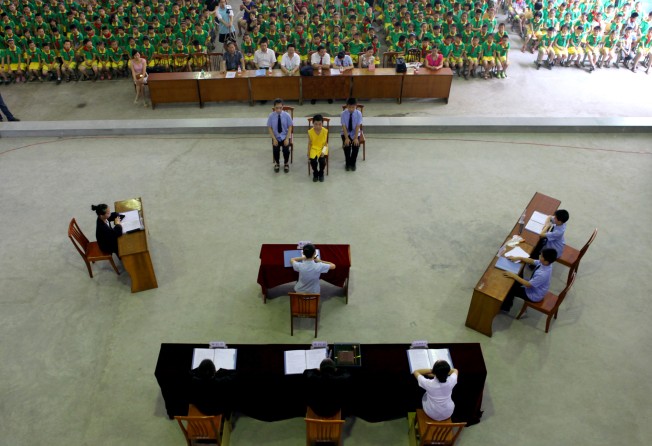Perspectives: studying our legal system could benefit mainland

" Non vitae, sed scholae, discimus" (we learn not for life, but for school) was the lament of the Roman sage Seneca. Increasingly, our society equates education with schooling, as if everything we learn, we learn from school.
This is not true. Human learning is much broader than schooling, though we frequently draw an equals sign between the two.
The word educate comes from the Latin ducere, meaning to lead or to elicit. So e-ducere means to bring out, to lead out, or draw out. That bringing out does not come only from schools: it comes also from institutions like the family, churches and society at large.
However, when we read about education, we more often than not hear people talk about our schools, academic curricula and examination systems.
What about other types of education, say legal education? (I'm not referring merely to law school training here). How we educate our lawyers is no less important than how we educate our college students, if for no other reason than both are special kinds of elites, minority groups that any civilised, law-abiding society depends heavily upon.
In December 2003, the All China Law Association organised their third lawyers' annual forum in Guangzhou, with participants from Macau and Hong Kong. More than 50 Hong Kong lawyers attended and, according to reports, their presence had an impact on their mainland counterparts, who at that time had high expectations for legal reform in China.
A senior attorney named Chen, from Shenzhen, shared the following story at the event.
In a case involving his clients in China, as well as parties in Hong Kong, Chen was invited by the Hong Kong court to testify as a Chinese legal expert. He testified under no fear or duress, explaining to the Hong Kong court the legal modus operandi on the mainland. The trial lasted for a week. Lawyers from both sides had ample time to put their arguments. In the end, his clients lost.
Instead of being upset by the defeat, Chen told the conference he was amazed by Hong Kong's legal system. The trial procedures were fair, just and transparent - all qualities that were lacking in the courts where he normally did business. How wonderful it would be, he reflected, if the Chinese system could incorporate such principles.
Chen's law school classmate, now a law professor at Peking University, was one of the keynote speakers at the forum. He asked why it was that Hong Kong could have such an enviable legal system and the mainland could not? Was it how lawyers were educated?
He pointed out a fundamental problem facing mainland law students that Hong Kong counterparts did not have to contend with.
Hong Kong runs a common law system, with habeas corpus, stare decisis and binding precedents as its basic tenets. China, by contrast, has a mixed legal system, incorporating Roman law, revolutionary law and traditional practices.
Chinese law schools find it hard to devise a consistent and coherent legal education programme, because these various legal doctrines often espouse conflicting principles.
On top of all this is, of course, political interference with the judiciary, something that legal education alone lacks the power to rectify.
Chen told the conference a story about Deng Xiaoping who, when asked about the legal systems in Hong Kong and Shenzhen, said that the latter should adopt the legal thinking of the former to move forward. Chen said that he regretted that this had not happened.
Chen's colleague from Peking University reflected on the late Qing reformers' eye-opening observation of English courts, and called on the Hong Kong legal profession to help China develop its legal education programme. "You should be our teachers!" was his concluding remark.
To help others, and to keep the rule of law in our own society on track, a solid common law education is one thing we neglect at our own peril.
Ronald Teng is the founder of MEA, a promoter of liberal arts education